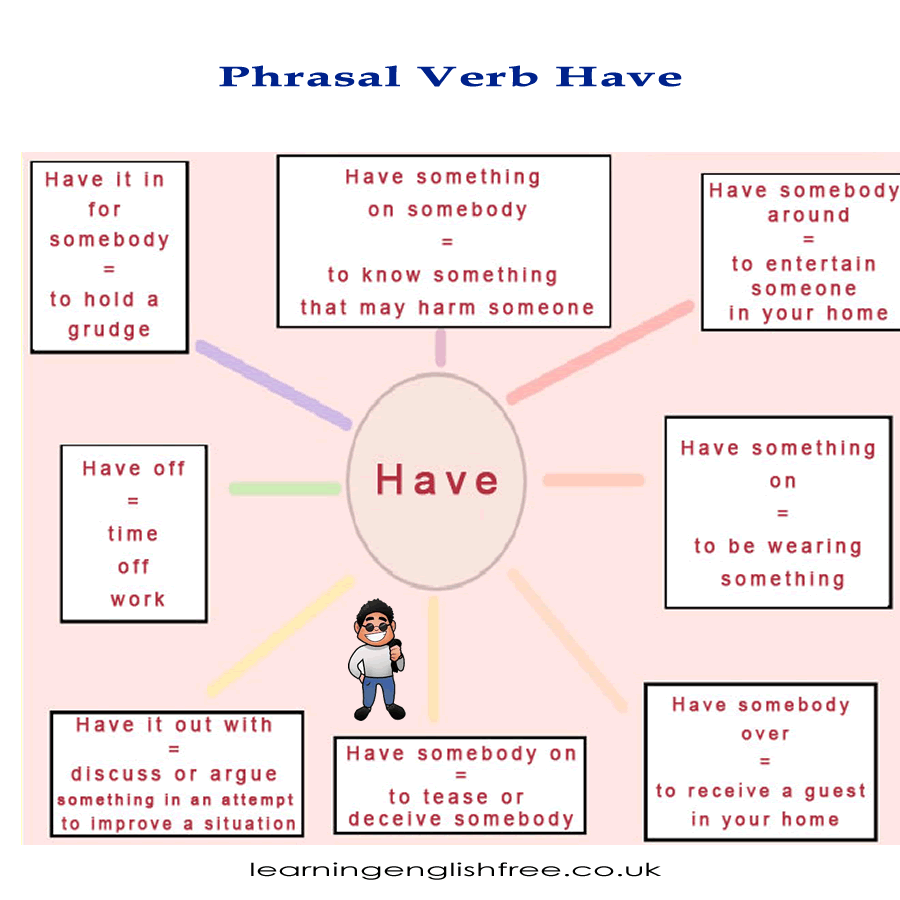Essential Phrasal Verbs Using 'Have': Expand Your English Vocabulary
Navigating 'Have' in Everyday English: Usage and Examples
Deep Dive into Phrasal Verbs with 'Have': Enhancing Communication
In this lesson, we're delving into the versatile world of the phrasal verb 'have.' Understanding these common phrasal verbs is vital for anyone looking to achieve fluency in English. This lesson will not only expand your vocabulary but also enhance your understanding of everyday English expressions. You'll learn how to use these phrases in various contexts, elevating your conversational skills and comprehension. Whether you're a student, a professional, or an English enthusiast, mastering these expressions will significantly benefit your communication in both formal and informal settings.
For further inquiries or additional resources, feel free to reach out to us at www.facebook.com/learningenglishfree.co.uk.
Meanings and Examples of Phrasal Verbs with 'Have'
- Have it in for somebody - To hold a grudge against someone.
- Example: "I think my boss has it in for me; he's been very critical lately."
- Have off - To have time off work.
- Example: "I have next Monday off, so let's plan a day trip."
- Have something on somebody - To know something that could be harmful or embarrassing to someone.
- Example: "She has something on her colleague that could jeopardize his reputation."
- Have somebody around - To entertain someone in your home.
- Example: "We should have the Smiths around for dinner next week."
- Have something on - To be wearing something.
- Example: "She had a stunning dress on at the party."
- Have it out with - To discuss or argue something thoroughly in an attempt to improve a situation.
- Example: "I need to have it out with my roommate; he's been very untidy."
- Have somebody on - To tease or deceive somebody.
- Example: "Don't take him seriously; he's just having you on."
- Have somebody over - To receive a guest in your home.
- Example: "We're having the neighbours over for a BBQ this weekend."
Empowering Your English with Phrasal Verbs
By the end of this lesson, you'll have a stronger grip on using the phrasal verb 'have' in various contexts. These phrases are not just vocabulary items; they're keys to unlocking more natural and fluent English communication. Remember, the ability to use phrasal verbs correctly can significantly enhance your spoken and written English, making it more native-like. As always, we encourage you to keep practising and exploring the rich and varied landscape of English phrasal verbs.
For more insights, lessons, and tips on mastering the English language, don't hesitate to visit us at www.facebook.com/learningenglishfree.co.uk. We're here to support your language-learning journey!

